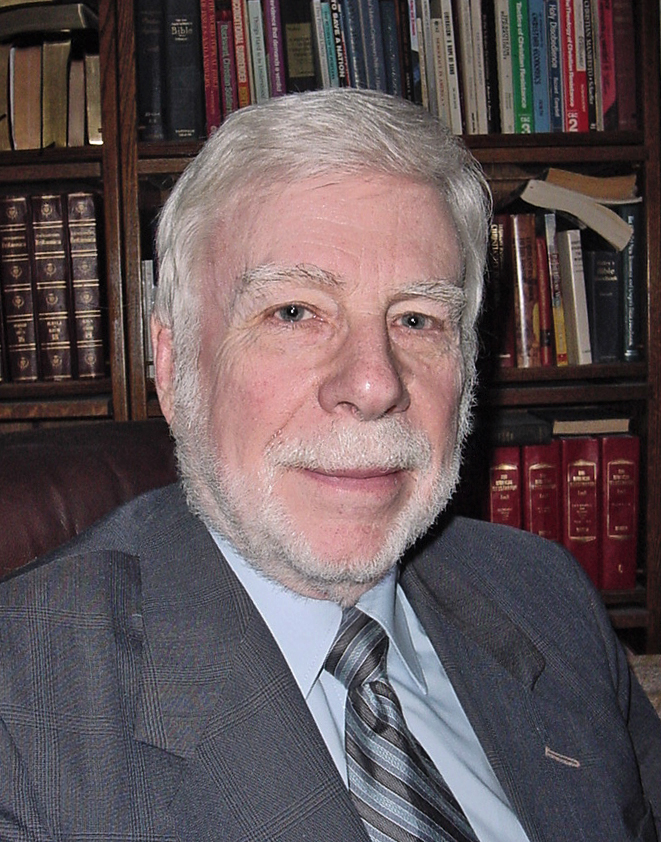Does the Evidence Prove St. Patrick Was a Baptist?March 20, 2017 Many traditionalists won’t like this revelation, but facts are facts, and this is not fake news. Patrick (original name was Sucat) was born in Scotland about A.D. 375 and lived about 85 years dying in 460. As a teen, he was captured by marauding raiders and taken to Ireland where he was sold to Milcho, a Druid chieftain and held in slavery for six years. Patrick said that he was hungry and naked during that time. He eventually walked 200 miles to the Irish coast to escape and to find his way back to Scotland. Many traditionalists won’t like this revelation, but facts are facts, and this is not fake news. Patrick (original name was Sucat) was born in Scotland about A.D. 375 and lived about 85 years dying in 460. As a teen, he was captured by marauding raiders and taken to Ireland where he was sold to Milcho, a Druid chieftain and held in slavery for six years. Patrick said that he was hungry and naked during that time. He eventually walked 200 miles to the Irish coast to escape and to find his way back to Scotland.
It is my desire to dispel the myths, delusions, superstitions, and lies that are circulating about Patrick. Of course, he did not drive the snakes out of Ireland but his preaching of Christ drove out the pagan Druids and removed human sacrifice; also, his assistants in his “monastery” copied and preserved the Bible and standard texts for us to peruse today. All this while the Roman Empire was crumbling and the dark ages were falling upon Europe and the Roman Church gained more and more power and riches.
Patrick was reared in a Christian home and his father was a deacon in an evangelical (or Baptistic) church. Also, his grandfather pastored in these ancient churches of Britain which had never come under the Roman yoke. A historian wrote more than a hundred years ago, "...the truth which saved him when a youthful slave in pagan Ireland was taught him in the godly home of...his father." Under that Christian influence, Patrick felt called to go back to Ireland as a missionary to convert those pagan Druids who had enslaved him!
He became one of the most effective missionaries of all time, some think, only second to the Apostle Paul! He refused to take gifts from kings and preached to everyone about the grace of God. Patrick wrote that he “baptized thousands of people,” ordained men to the ministry, counseled and won wealthy women, and sons of kings and trained them for Christian service. He refused to be paid for baptizing people, ordaining preachers, and even paid for the gifts he gave to kings.
He was legally without protection since he refused the patronage of kings and was beaten, robbed, and put in chains. He says that he was also held captive for 60 days but gives no details.
It is only natural that the nascent but growing Roman Church would claim him but it was and is a bogus claim. One historian wrote, "Rome's most audacious theft was when she seized bodily the Apostle Peter and made him the putative head and founder of her system; but next to that brazen act stands her effrontery when she 'annexed' the great missionary preacher of Ireland and enrolled him among her saints." Well said.
Baptists should appreciate the fact that Catholics pay homage to him, even build churches in his honor; however, it is time to realize that Patrick was only a very simple, even untrained Baptist preacher. He was not interested in power or position or possessions but in preaching the simple Gospel of Christ. From my study of him, he would be embarrassed and chagrined that a day in his honor is often turned into a drunken orgy.
The early non-Catholic Churches were not called “Baptist” but most preached, practiced, and professed what modern Baptists do.
If Patrick had been a Roman Catholic then somewhere there would be support for that, but there is none. Patrick wrote Confession, or Epistle to the Irish and Epistle to Coroticus and in neither did he refer to Rome. The Breastplate, a hymn is also attributed to him. Not one of his early biographers mentions any Roman connection. Moreover, there is no support for the claim that Pope Celistine sent him to the Irish people.
Furthermore, during his life, the Roman Church was only in embryo form. The Bishop of Rome was not considered the authoritarian he became much later. In fact, church authority was split in five directions: the Patriarchs at Constantinople, Antioch, Jerusalem, and Alexandria all claimed to have as much authority as the Roman Bishop!
Professor George T. Stokes, a prominent scholar, declared that before the synod of Rathbresail in A.D. 1112, the rule of each Irish Church was independent, autonomous, and "...dioceses and diocesan episcopacy had no existence at all."
Neander’s History of the Christian Church says that the facts “prove the origin of the [Irish] church was independent of Rome, and must be traced solely to the people of Britain... Again, no indication of his connection with the Romish church is to be found in his confession; rather everything seems to favor the supposition that he was ordained bishop in Britain itself."
Odriscol, who, incidentally, was an Irish Catholic, in his work entitled, Views of Ireland, reveals: "The Christian church of that country, as founded by St. Patrick and his predecessors, existed for many ages, free and unshackelled. For 700 years this church maintained its independence. It had no connection with England and differed on points of importance with Rome." That’s from an Irish Catholic!
Another Irish scholar wrote, "...Leo II was bishop of Rome from A.D. 440 to 461 and upwards of one hundred and forty of his letters to correspondents in all parts of Christendom still remain and yet he never mentions Patrick or his work, or in any way intimates that he knew of the great work being done there." So, until after 461, the Roman Church had not tried to make Patrick as one of their major “saints.”
Furthermore, the Venerable Bede (Father of English History) did not refer to Patrick in his Ecclesiastical History of the English People. That fact is shattering to Patrick’s Roman connection. Moreover, there are many other proofs that Patrick was a Baptist, not a Catholic: He only baptized born-again believers, never infants. He wrote about a convert named Enda who was saved the night after his son Cormac was born. He baptized Enda but not his infant son. And in all his letters and his books, Patrick never mentions baptizing infants. He wrote of “baptized captives,” “baptized handmaidens of Christ,” baptized believers,” and he wrote, “Perhaps, since I have baptized so many thousand men,…” But never infants.
An additional proof of Patrick being a Baptist was he only baptized by immersion. Various church historians record an incident when 12,000 people were converted and baptized. “Profiting by the presence of so vast a multitude, the apostle [Patrick] entered into the midst of them, his soul inflamed with the love of God, and with a celestial courage preached the truths of Christianity; and so powerful was the effect of his burning words that the seven princes and over twelve thousand more were converted on that day, and were soon baptized in a spring called Tobar Enadhaire.”
Thomas Moore, in his history of Ireland says: "The convert saw in the baptismal fount where he was immersed the sacred well at which his fathers worshipped."
Archbishop Usher admits: "Patrick baptized his converts in Dublin, including Alpine, the king's son, in a well near Saint Patrick Church, which in after ages became an object of devotion."
Famous church historian William Cathcart stated, "There is absolutely no evidence that any baptism but that of immersion of adult believers existed among the ancient Britons, in the first half of the fifth century, nor for a long time afterwards." He also wrote, "There are strong reasons for believing Patrick was a Baptist missionary and it is certain that his Baptism was immersion." No, Patrick was a Baptist preacher, not a Roman Catholic priest.
Some have accused Patrick of not believing in the Trinity, but that is false. He does not deny it in his two books and his hymn, The Breastplate clearly affirms that vital doctrine:
Patrick and his followers advanced toward the Irish king dressed in white, carrying crosses and singing the first verse of Patrick's hymn:
He is also accused of keeping the Sabbath, that's no big deal. I think everyone would be in better health if they took a day for total relaxation. I noted that one reference to him keeping the Sabbath mentioned that he rested on the Sabbath but held services on the Lord's Day. Col 2:16 tells us "Let no man therefore judge you in meat, or in drink, or in respect of an holyday, or of the new moon, or of the sabbath days." It is also true that people of Scotland kept the Sabbath so it could be that he decided to not hinder his preaching by attacking lesser matters. Whatever, I think it is no big deal or even a small deal.
Patrick knew nothing of confession or forgiveness by a priest; he forbade worship of images; he never told his converts to pray to Mary or any other “saint”; he never mentions purgatory, holy days, rosary, or last rites. Moreover, Patrick never mentions any pope or cardinal or gives credibility to any creed, catechism, or confessional. Nor to Eucharist, relics, or dogma of the Roman Church.
Patrick was not Irish nor was he a Catholic. He preached, practiced, professed, and promoted Baptist distinctives and to declare otherwise is simply Irish blarney.
http://donboys.cstnews.com/
| ||||||
 Dr. Don Boys is a former member of the Indiana House of Representatives; ran a large Christian school in Indianapolis, wrote columns for USA Today for eight years; authored 15 books, which can be purchased below, and hundreds of columns and articles for Internet and print media publications; defended his beliefs on hundreds of talk shows. www.cstnews.com, www.Muslimfact.com, www.thegodhaters.com. Dr. Don Boys is a former member of the Indiana House of Representatives; ran a large Christian school in Indianapolis, wrote columns for USA Today for eight years; authored 15 books, which can be purchased below, and hundreds of columns and articles for Internet and print media publications; defended his beliefs on hundreds of talk shows. www.cstnews.com, www.Muslimfact.com, www.thegodhaters.com. Don's newest book "Muslim Invasion" is highly recommended.

Buy it here on Amazon Visit Don Boys, PhD's website at www.cstnews.com See more from Don Boys, PhD at www.thegodhaters.com
|
